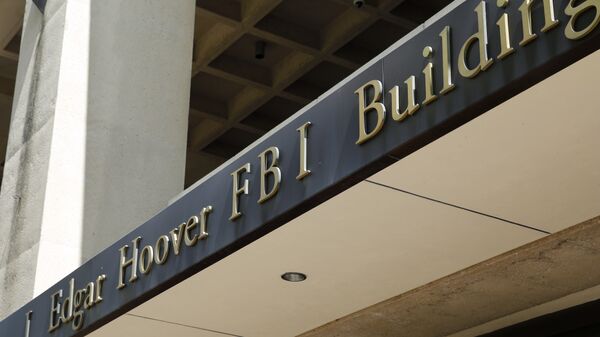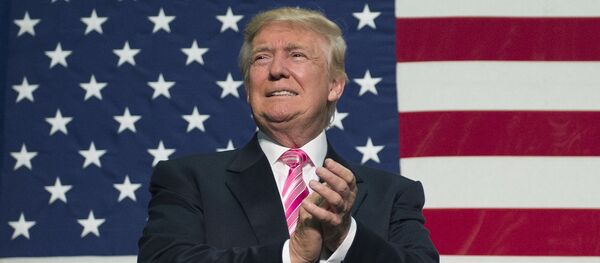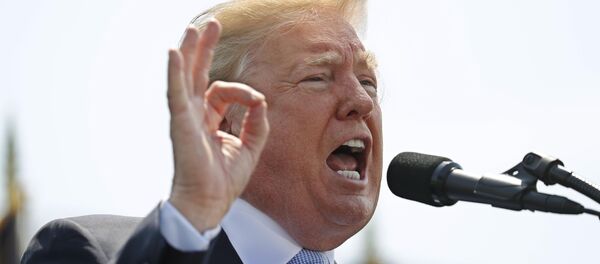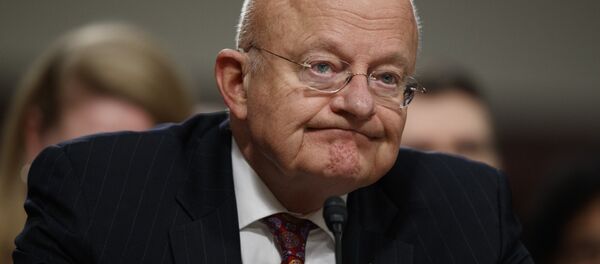Sam Clovis, the former co-chairman of Trump's campaign, found an email from Halper in his inbox "out of the blue" in August leading up the November 2016 election, the Washington Examiner reported Tuesday.
"I think Halper was using his meeting with me to give him bona fides to talk to George Papadopoulos. He used Carter Page to get to me and he used me to get to George. George was the target. I think George was the target all along," Clovis said.
Clovis did not know Halper at the time he got the email to meet, nor did he think the meeting was sufficiently consequential to report up the chain of command.
"It was like, two guys sitting in the faculty lounge talking," Clovis told the Washington Examiner.
"It was so innocuous I never reported it back to headquarters," he said, adding, "It did not raise any antennas or red flags or something we needed to be on guard against."
If the FBI and its informants were really investigating so-called Russian collusion within the campaign, allegations Moscow has exhaustively rejected as absurd, the Clovis-Halper meeting is certainly not an obvious piece of evidence supporting Russiagate theories.
"It was about China. It had nothing to do with emails. No mention of Russia, no mention of Hillary Clinton, no mention of her campaign. Only a passing mention that he had met with Carter Page. Other than that, it was a discussion on his research and what he thought about China," he said.
According to the Washington Examiner's interview with Clovis, the meeting was a crucial linking point for the FBI takedown of Papadopoulos, a foreign policy analyst who advised the Trump campaign. Special Counsel Robert Mueller's prosecution coaxed the Chicago native into accepting a plea bargain in October 2017, when Papadopoulos pleaded guilty to the vague federal crime of "making false statements."
Mueller's strategy to take down a policy analyst could arguably be part of a prosecutorial tactic called "climbing the ladder." As one of Mueller's former Princeton classmates, lawyer Harvey Silverglate, wrote in 2014, the technique is to "grab, squeeze, and ‘turn' a vulnerable mid-level employee into a witness against higher-ups in exchange for leniency."
The former co-chairman suspects that Halper hoped "that somebody would bite in the campaign… his goal was to drag George into this to say the Trump campaign tried to get access to those emails from Russia." But, alas, "nobody was biting."
"As far as I know, no one in the campaign lifted a finger to get to the 30,000 emails. I don't think it was in their interest. Anytime anybody approached me about oppo, I deleted it. Oppo research against Hillary Clinton? We had plenty of material. It's not like it's not a target-rich environment," Clovis noted, using "oppo" as shorthand for the standard political practice of opposition research.
Halper, a 73-year-old professor at Cambridge University, has a bit of experience in undercover political influence operations. As The Intercept's Glenn Greenwald reported May 19, the academic "was responsible for a long-forgotten spying scandal involving the 1980 election, in which the Reagan campaign — using CIA officials managed by Halper, reportedly under the direction of former CIA director and then-vice presidential candidate George HW Bush — got caught running a spying operation from inside the Carter administration."





